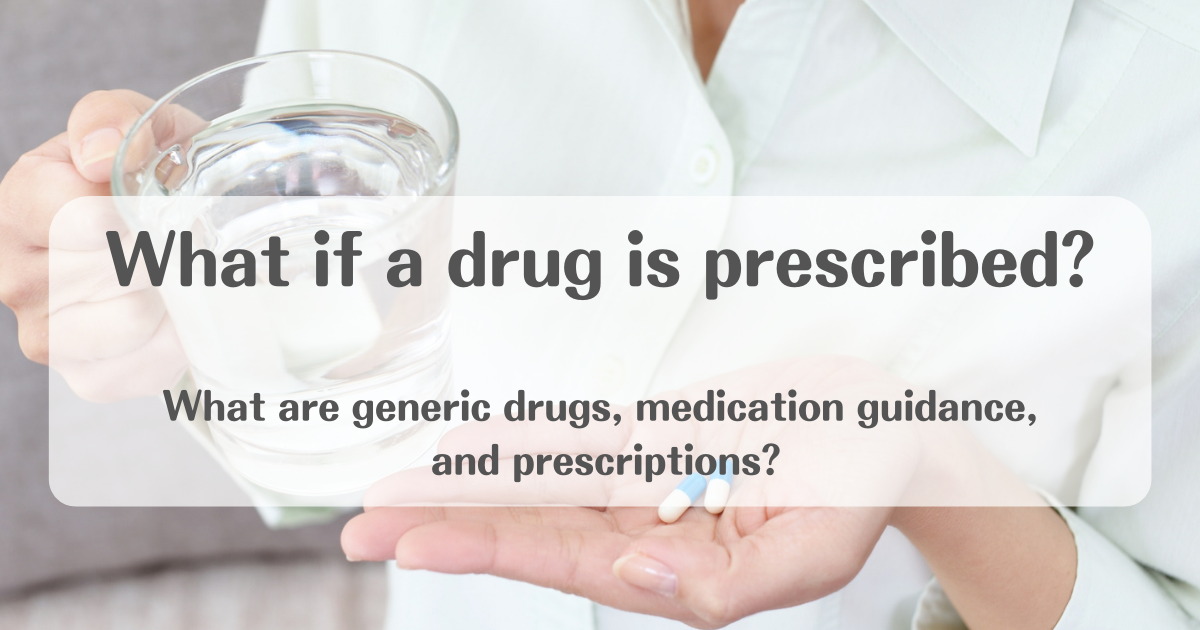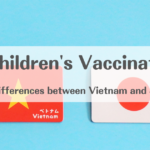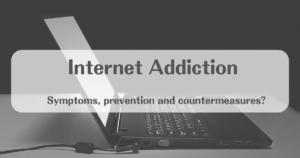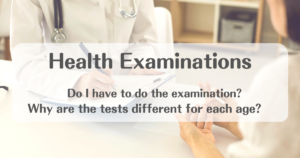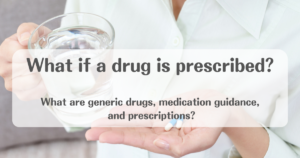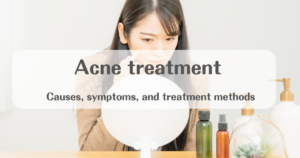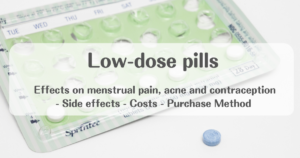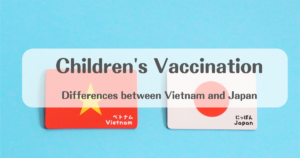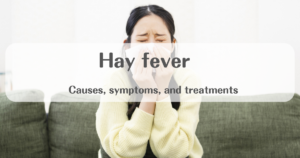The translated version is provided only for customers’s convenience. It should be read as an free translation.
Maybe some of you may not know what to do, if you are not used to visiting hospital and get medicine.
Many of the words related to medicines are unfamiliar, and even if somehow you try to image the medicine, you still have difficulties to grasp the image of it…
This time, we would like to introduce the flow whenever someone got a prescription after the consultation, and the necessary knowledges how to handle it.
Contents
What is a prescription?
When you have completed a medical examination at the hospital and are prescribed medicine, the first thing you should get is a prescription.
A prescription, to put it simple, is a [letter sent by a doctor to a pharmacy regarding the medicines a patient needs.]
The following are the main things that are specifically written.
- Patient’s name, date of birth, gender
- Medical institution name / Contact information / Prescribed doctor’s name
- Name of medicine
- Types of medicine (tablets, capsules, etc.)
- Amount of medicine (amount to take at one time)
- Medication frequency per day
- When to take medication
- About change to generic drug
A pharmacist who is a medicine professional looks at the prescription and confirms that the medicine is properly prescribed before dispensing.
If you are currently taking other medicine, do record the medicines you are taking in your “medication notebook“, and take them to the pharmacy with your prescription.
Some medicines have compatibility, and taking them together may weaken the effect or conversely, strengthen it more than necessary.
By submitting a medicine notebook, you will be able to check if there are any problems with taking the medicine you are prescribed and the medicine you have been taking together.
※In most cases, you can get your medicine notebook at a pharmacy. If you don’t have one, make sure you know what medicine you are taking in advance and tell your pharmacist.
Also, you need to be cautious after getting the prescriptions since it is only valid for 4 days. Since the prescription will be invalid after 4 days, so take it to the pharmacy as soon as you get the prescription.
About medication instruction
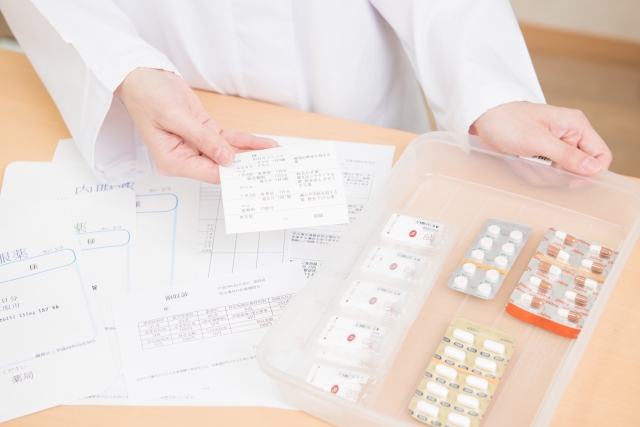
After giving a prescription to the pharmacy, the pharmacist will prepare the medicine and tell you how to take and handle the medicine, as well as its side effects and precautions. This is “medicine instruction”.
Specifically, you can get the following explanation.
- What kind of symptom is the medicine effective for?
- How many times a day and when should I use it?
For example: consume before meals
- Are there any side effects of taking the medicine?
F example: Sleepy effect, or can cause diarrhea
- Whether to store in a cold place or at room temperature
Medicines can be poisonous if misused. If you have any questions, please confirm with your pharmacist to make sure you take your medicine correctly.
Medicines you can buy at Japanese pharmacies
It can be roughly divided into two depending on the risk of the medicine.
- Drugs that require a doctor’s prescription (medical drugs)
- Over-the-counter (OTC) drugs (non-prescription drugs)
“Prescription drugs” must be prescribed under the diagnosis of a doctor, but “non-prescription drugs” can be directly purchased at pharmacies or drug stores.
Of the non-prescription drugs that have strong actions and side effects, we strongly recommend to consult a pharmacist before using them, so please consult your pharmacist by referring to the table below.
| Classification | Drugs that require guidance | First class OTC drugs | Second class OTC drugs | Third class OTC drugs |
| Drug strength | Strong | Strong | Medium | Weak |
Typical medicine | Anti-allergic drug Antipyretic analgesic | Gastrointestinal drug Antipyretic analgesic Hair restorer Smoking cessation aid | Antipyretic analgesic Cold medicine Herbal medicine | Vitamin preparation In]testinal regulator |
| Consultation with pharmacist | Mandatory | Mandatory | Mandatory | Unnecessary |
What is a generic drug?

A generic drug is a new drug that is sold because the patent period of the company that first made the drug has expired and other companies are now able to sell the drug with the same ingredients.
The first drug made is called a “branded generic drugs“, and the drug newly made with the same ingredients is called a “generic drugs“.
One of the characteristics of generic drugs is
- The price is cheaper than the branded generic drugs (about 40-80% cheaper)
- Same efficacy and safety as the branded generic drugs
- Some are designed to prevent mistakes in consuming and make it easier to drink.
And so on.
We may be happy since the quality, safety and efficacy of generic drugs will not change even though the drug price is low.
On the other hand, although the active ingredients are the same as the branded generic drugs, they are not exactly the same, so if you have been taking the branded generic drugs for many years and changed to generic, you may feel that the effect is not sufficient or you do not expect it. There is also the possibility of side effects.
There are some medicines that have generic drugs and some that do not, so if you want to reduce the cost of medicines, please make a request when you hand over the prescription at the pharmacy, and tell “I want to use generic drugs (Generic iyakuhin de onegaishimasu)” to the pharmacist.
If you run out of medicines you brought from your own country …
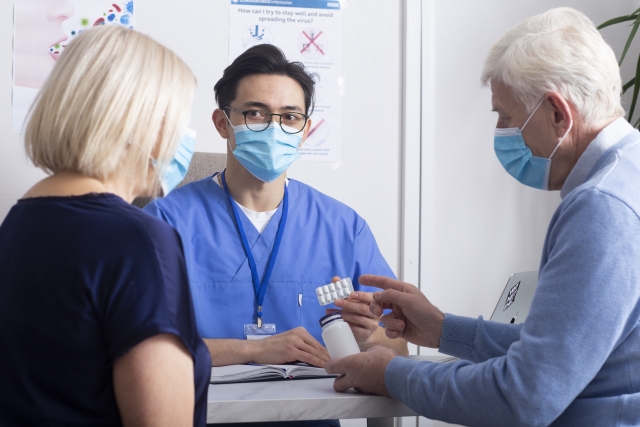
First of all, let’s have a medical examination in Japan!
There may be exactly the same medicines in Japan, and if not, the doctor may consult with you about which medicines have similar effects.
The worst thing is not taking the medicine when it runs out.
When living in Japan, some people often get sick because they can’t keep up with the differences in the environment. Make sure to visit a hospital before you run out of medicine, so that you will be able to continue taking your medicine.
But if you don’t know which hospital you should go … feel free to contact the Online Home Doctor!
With Online Home Doctor, you can easily receive online medical treatment from your home with just one smartphone! We support multilingual medical examinations in English, Chinese, and Vietnamese as well as Japanese, so you can consult with your doctor in your native language.
母国語で診察を受けたい方へ
For those who wish to take
an Online Medical Examination
We have many achievements in online medical support for technical intern trainees and also foreign residents in Japan.
For [multilingual online medical support],
please consult to OHDr.
If you are interested in Online Medical Examination,
please feel free to contact OHDr. anytime!

